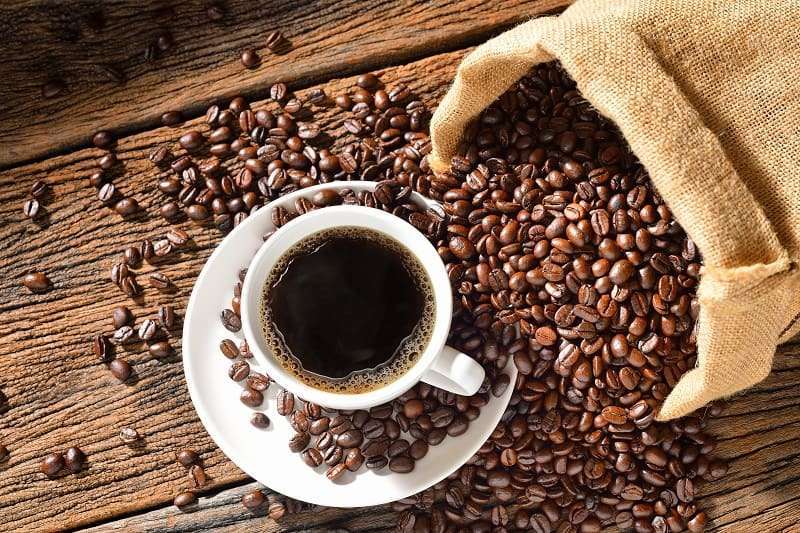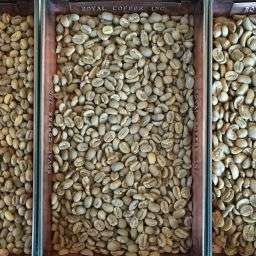
Achieving the perfect cup of coffee is an art that hinges significantly on the balance between coffee beans and water. This ratio is not just a minor detail; it’s the foundation of brewing excellence, influencing both the strength and flavor of your coffee. Various factors play into this intricate balance, including the type of beans, the grind size, and, crucially, the coffee-to-water ratio. Understanding and mastering these elements can transform your coffee from a mere beverage to an exceptional experience.
The Golden Ratio for Brewing Coffee
Experts in the coffee industry often refer to a “golden ratio” for brewing coffee, which is generally 1 gram of coffee to 18 grams of water (1:18). This ratio is recommended for a well-balanced cup, providing a starting point for both novices and seasoned brewers alike. It’s a guideline that ensures the coffee is neither too strong nor too weak, offering a harmonious flavor profile that can satisfy a wide range of palates.
Measuring Coffee Beans and Water
The precision in measuring coffee beans and water cannot be overstated. For those seeking the pinnacle of coffee brewing, using a scale to measure ingredients is crucial. Scales provide accuracy that measuring spoons cannot, ensuring that each cup of coffee maintains consistent quality. This method eliminates guesswork, allowing for adjustments to be made with confidence.
The debate between tablespoons and grams is settled by acknowledging their conversion. While tablespoons offer a quicker, more accessible method, grams provide the precision required for superior coffee brewing. Recognizing the difference and understanding the conversion between these measurements is essential for adapting recipes and achieving the desired coffee strength and flavor.
Standard Measurements for Different Cup Sizes
Brewing coffee is a practice that varies significantly with the amount of water used. For a single cup (6 ounces), the general guideline suggests using 15 grams (approximately 2 tablespoons) of coffee. As the quantity increases, this ratio scales accordingly:
- For 4 cups (24 ounces): 60 grams or 8 tablespoons of coffee.
- For 6 cups (36 ounces): 90 grams or 12 tablespoons.
- For 8 cups (48 ounces): 120 grams or 16 tablespoons.
- For 10 cups (60 ounces): 150 grams or 20 tablespoons.
- For 12 cups (72 ounces): 180 grams or 24 tablespoons.
Adjustments for Coffee Strength
Adjusting the coffee-to-water ratio is essential for tailoring the strength of your coffee. For a stronger brew, increase the amount of coffee relative to water; for a milder cup, decrease the coffee quantity. The beauty of coffee brewing lies in this flexibility, allowing personal preferences to guide the strength and intensity of the flavor.
Espresso, Drip Coffee, and French Press
Different brewing methods require specific considerations:
- Espresso typically uses a 1:2 ratio (grams of coffee to ml of water), demanding a fine grind for optimal extraction.
- Drip Coffee adheres closer to the 1:16 ratio, suitable for a medium grind.
- French Press coffee benefits from a 1:18 ratio and a coarse grind, ensuring a full extraction without over-extraction.
Factors Influencing Coffee Strength and Flavor
The Role of Coffee Grind Size
Grind size crucially affects the extraction process and, consequently, the coffee’s strength. A finer grind increases the surface area in contact with water, enhancing extraction and strength. Conversely, a coarser grind results in a milder brew due to reduced surface area and extraction efficiency.
Importance of Coffee Freshness
The freshness of coffee beans dramatically impacts the brew’s final taste. Freshly roasted beans contain more natural oils and aromatic compounds, which diminish over time. Grinding beans just before brewing maximizes flavor extraction, ensuring a vibrant and robust cup.
Water Quality and Temperature
Water quality and temperature play pivotal roles in brewing coffee. Ideal brewing temperatures range between 195°F to 205°F (90.5°C to 96.1°C), facilitating optimal extraction without degrading delicate flavors. Moreover, the purity of water affects the coffee’s taste; using filtered or bottled water can enhance the brew’s overall quality.
FAQs
How does the type of coffee bean affect the ratio?
The type of coffee bean can impact the flavor profile and extraction efficiency, necessitating adjustments to the coffee-to-water ratio. Lighter roasts may require a slightly higher coffee-to-water ratio compared to darker roasts due to their density and flavor characteristics. Experimentation is key to finding the ideal balance for your taste preferences.
Can I use pre-ground coffee instead of whole beans?
While whole beans freshly ground before brewing yield the best flavor, pre-ground coffee can be used for convenience. However, pre-ground coffee may require slight adjustments in the brewing ratio or method to compensate for the loss of freshness and potential changes in grind size consistency.
How do I adjust the ratio for cold brew coffee?
Cold brew coffee typically requires a higher coffee-to-water ratio, often around 1:8, due to the extended brewing time and lower extraction rate at cold temperatures. Adjusting the ratio depends on the desired strength and can vary based on personal taste.
Conclusion
Mastering the perfect coffee beans per cup of water ratio is essential for crafting a superior cup of coffee. This process involves understanding the foundational ratios, the impact of grind size, the freshness of the beans, and the quality and temperature of the water used. Success in coffee brewing comes from experimentation and adjusting variables to align with personal preferences, encouraging coffee enthusiasts to explore and refine their brewing techniques for the ideal cup.









